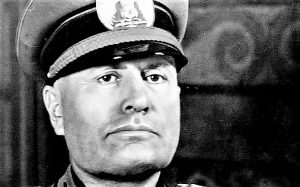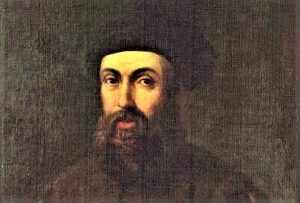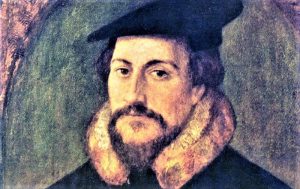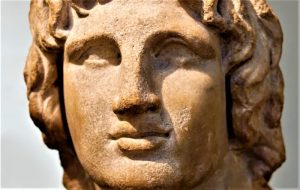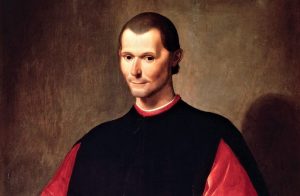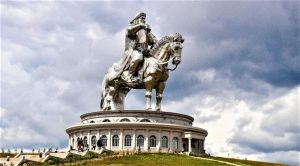Martin Luther
Martin Luther was a German theologian who initiated the Protestant Reformation. He defended his opinions in all the cities he visited and was investigated and to some extent persecuted, by the Christian church until Pope Leo X managed to stop him. It was a great reformer and father of the Protestant Reformation who made serious criticisms and fought against corruption within the Catholic Church during the 16th century. He was always driven to seek a merciful God, was a monk and an obedient disciple, fasted and prayed many hours a day while meditating. He was characterized by trying to make the Christian church retake the teachings that were in the Bible, seeking to restructure the Christian churches within Europe. For this reason, the Catholic Church created a counter-reform to try to eliminate Luther's Protestant reformation.
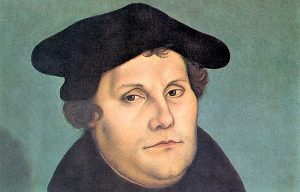
Personal Information
- When he was born: 10/11/1483
- When he died: 18/02/1546
- Nationality: German
Who was Martin Luther?
Martin Luther, a German theologian who founded the Protestant Reformation to oppose the ideas and beliefs of the Catholic Church of the time. He fought against the church's corruption and was driven at all times by his beliefs in a merciful God. He was a monk and an obedient disciple dedicated to prayer and meditation.
Martin Luther biography
Martin Luther was born on November 10, 1483. His father, Hans, and his mother, Margaethe Luder. One year after his birth, his family moved to Mansfeld, where his father ran several copper mines. His father, wishing that Martin would become a civil servant to give more honor to the family, sent him to different schools to study. Following his father’s wishes, he devoted part of his life to study law. Having been raised within the Catholic Church, but not having the proper knowledge of it, he always feared God´s anger. On July 17, he decided to become a monk and in 1505 he entered an Augustinian monastery in Erfurt, an action that was not fully supported by his father. In 1507, Martin Luther was ordained as a priest and focused on forgiveness of sins. In 1508, he was designated as philosophy professor at Wittenberg. He received his doctorate in theology on October 18, 1512, when he also served as a monastery preacher and in Wittenberg as well. During the year 1520, the pope gave Luther a warning, letting him know that he ran the risk of being excommunicated unless he retracted all of his writings. In October of that year, Luther sent a letter to the pope letting him know that he disagreed with him and that he would continue his teachings. Pope Leo X excommunicated Martin Luther on January 3, 1521, through a document called Decet Romanum Pontificem.
Martin Luther’s death
At the end of 1545, Luther traveled to Mansfeld because he was worried about his family who were in Hans Luther’s copper mine. This mine was under threat to be controlled by Count Albrecht of Mansfeld. He tried to negotiate to reach an agreement until they finally managed to reconcile on 17 February. That same day, he began to suffer from chest pains, then died early in the morning.
Philosophical thought of Martin Luther
For Luther, faith had to be a matter of reflection. Although his reform was mainly religious in nature, it produced different changes in society, economy and politics that have had repercussions to this day. His entire thought was based on the doctrine of the two kingdoms, one the kingdom of God and the other, the kingdom of the world. It divided the human being into two different parts, one made up of men who belonged to the kingdom of God (Christians) and those who belonged to the worldly kingdom (non-Christians). He also thought that political power was created by God for the world and that both kingdoms was how God governed men. For him, the standards were God’s and God’s divine right was communicated through God’s Word.
The 95 theses
The 95 theses were a document that questioned the power and efficiency of indulgences, it was written by Martin Luther and was directed specifically to the Roman church, a document through which papal doctrines were discredited. It was a direct confrontation between Martin Luther and the Catholic Church. The main reason for writing them was the knowledge he had about Johann Tetzel, who was a priest of the Order of Preacher Brothers or Dominicans, and who, together with Pope Leo X, sold indulgences to supposedly cleanse all peoples’ sins with the only purpose of enriching themselves. He wrote the thesis so that, everybody could read them and also, the thesis were written in Latin. He rejected the possibility of salvation through buying indulgences. He talked about indulgence for both, the dead and the living, about the ecclesiastical treasure, and he criticized indulgences. The 95 theses were condemned on 15 June 1520 by Pope Leo X. And after this, Luther was excommunicated from church, he was demanded to retract what he had written in his thesis, however, he refused, originating in this way the Protestant Reformation, and at the same time, the birth of a variety of doctrines within Christianity, such as Presbyterianism and Lutheranism.
Martin Luther’s doctrine
Lutheranism or Protestant religious doctrine had a special doctrine. For Lutheranism, sacred sacraments were only two: baptism and Eucharist or Lord´s Supper. Persons belonging to Lutheranism allow the use of images to teach their faith, but they refuse to accept images worship. Within their doctrine, pastors and ministers also had a very important role and could, among other things, get marriage and practice economic activities with the only objective of favoring the church.
Martin Luther’s contributions
Among his main contributions we can mention the following:
- He created the scholastic and humanist school, the reform school which was in favor of education provided and directed by the state.
- He established the bases of Protestantism, causing a great impact on Europeans’ mentality. His ideas opened the way to man’s freedom, faith and spirituality.
- He spread Protestant religion causing a change of attitude in daily life.
- Through his ideas, he managed to get the peasants to rebel against the lordly power.
- Many of his principles are the basis of human rights.
- He was in charge of rescuing basic Bible principles that had been set aside by the church.
Phrases
Some of Martin Luther’s most famous phrases are the following:
- Music is the best relief for a concerned man. Thanks to it, heart is happy again, comforted and renewed.
- I have three dangerous dogs: ingratitude, pride and envy. When they bite, they leave a deep wound.
- A lie is like a snowball; the more it rolls, the bigger it becomes.
- A man’s heart is a millstone that works ceaselessly; if you don’t grind at all, you run the risk of crushing yourself.
- You are not only responsible for what you say, but also for what you do not say.
How to cite this article?
Briceño V., Gabriela. (2019). Martin Luther. Recovered on 4 January, 2025, de Euston96: https://www.euston96.com/en/martin-luther/



